Don't Follow Your Passion
Everyone says you should follow your passion. But everyone isn't always right.
If you want to achieve massive success in your career then passion might not even remotely be the right place the start.
If you want to achieve massive success in your career then passion might not even remotely be the right place the start.
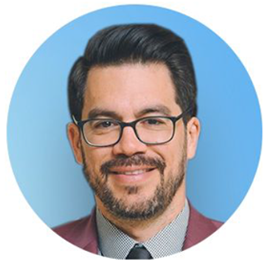
Tai Lopez
Feb 22, 2015
In today's Book-of-the-Day, "So Good They Can't Ignore You," Cal Newport examines the science of how to best choose your life's work.
Newport says, "Don't follow your passion."
This book is a bit controversial. It goes against most of what you've heard in the popular media.
Steve Jobs, of course, disagreed with this book's premise.
Jobs said, "You've got to find what you love... And the only way to do great work is to love what you do. If you haven't found it yet, keep looking. Don't settle."
Do What Steve Jobs Did, Not What He Said
But Newport argues that if you actually look at what Steve Jobs did with his life, you will find a different story. Steve Jobs didn't start with passion for technology or design. In fact he was more of a hippie at first, interested in going to Zen monasteries and 'dropping out' of life.
There is an interesting non-profit called Roadtrip Nation that put out a PBS series and a set of interviews of successful people and how they originally found their life and career 'calling.'
Newport summarizes, "Compelling careers often have complex origins that reject the simple idea that all you have to do is follow your passion."
That reminds me a bit of Einstein, "Everything should be made as simple as possible, but not simpler."
So what is a better way to find out what you should be doing for work?
Let me give you a few ideas from the book and a few of my own:
1. Experience Creates Passion: Yale professor Amy Wrzesniewski published a paper called, "Jobs, Careers, and Callings: People’s Relations to Their Work." She discovered that the strongest predictor of seeing work as a calling was the number of years spent on the job. Experience at something seems to create love of what you do. Practice and years in the career matter.
2. Passion Is A Side-Effect Of Mastery: Daniel Pink is mentioned in the book along with a 40 year scientific framework called "Self-Determination Theory." The theory goes that intrinsic motivation comes from:
A. Autonomy - Having control over your career and feeling that what you are doing is meaningful.
B. Competence - Feeling like a master of the skills you practice at work.
C. Relatedness - Having strong social connections at your job.
So you must have a well rounded approach to finding your life's work. It's not as simple as just finding your passion. This theory of 'relatedness' actually shows that "WHO" you work with is almost as important as "WHAT" you do for work. Social life matters - even when it comes to work.
3. Strengths Before All: My personal experience is a bit different than this book. I think that more important than just having a lot of experience, autonomy, competence, and relatedness, you must have 'APTITUDE' - what are you good at naturally?
I believe that this is the trump card that beats all other factors.
This is what Peter Drucker taught in "Managing Oneself": "Most people think they know what they are good at. They are usually wrong…And yet, a person can perform only from strength.”
One of the most important parts of my "67 Steps" program is the question of "Eularian Destiny."
I talk about the 5 or 6 ways you can determine your strengths (it's a bit too long to explain here but check out the "67 Steps" to learn more).
The basic explanation is that you have to open up multiple lines of "feedback analysis" so that you can get clues as to what your strengths are from multiple sources. You can't just go with your gut or ask your mom or best friend.
Most of us have huge blind spots when it comes to determining our strengths.
And make no mistake, personality types exist. And because they exist it's logical that natural strengths and weaknesses must also exist.
I was talking with Dr. David Buss on his research on the origins of personality types and he said from a biological standpoint we don't really know fully why personality types exist.
Different theories have been put forward like life-history theory, costly signaling theory, environmental variability in fitness optima, frequency-dependent selection, mutation load, and flexibly contingent shifts in strategy according to environmental conditions.
Think of it a bit like romance and dating.
I was recently reading a psychology text book which says there are 6 types of love:
1. Agape: is a gentle, caring, giving type of love; brotherly love not concerned with the self. It is relatively rare.
2. Ludus: game-playing or uncommitted love.
3. Storge: a slow developing, friendship-based loved.
4. Mania: an obsessive or possessive love, jealous and extreme.
5. Eros: romantic, passionate, love.
6. Pragma: is a pragmatic, practical, mutually beneficial relationship. It may be somewhat unromantic.
What was interesting is that research by Susan and Clyde Hendrick found that Eros passion scored higher in relationship satisfaction.
Passion is important.
This book is more pragmatic (which is also one of the 6 forms of love).
I think the happy balance is a bit of "Eros" and a bit of "Pragma" when picking your career.
You can't just pick something you are passionate about and make that your career if you have no natural aptitude at it.
I always liked to draw - it was somewhat of a passion. But my friend Joe was always naturally 10 times better than me. Of course with many years of practice, I might have been able to catch up to Joe's skill level. But in those years he could have also practiced and progressed much faster than me.
So why force my drawing passion into a career choice? I'm glad I didn't. It's better for me to just have it as a hobby.
Some passions should just stay hobbies.
Like John Wooden says, "I am an optimist. However, if you set goals that are so idealistic there's no possibility of reaching them, you will eventually become discouraged and quit. They become counter-productive. Be a realistic optimist."
Remember, you live in a universe of 100 billion galaxies. We are not the center.
That also means in a 7.3 billion person, free-flowing economy the only way to get other humans to exchange their hard earning money and pay you is if you have built your natural strengths into mastery by putting in the effort to build experience and 'deep domain expertise.'
You have to be good.
Deep domain expertise from practicing your strengths is what actor/producer Ron Howard meant when he told someone the formula to making it in super competitive Hollywood; "Be so good they can't ignore you."
You have to be better than the average. Much better.
To do that you have to follow what one of my mentors used to tell me, "Tai, it's horses for courses."
Make sure you are the right race horse on the right race course.
So remember, whether you are just starting out on your career or you are years into it, be sure you are focused on the right career for your life.
Most humans are 10 or 20 years into the wrong job. It's a nightmare.
In "Positive Psychology: The Science Of Happiness and Flourishing" authors William Compton and Edward Hoffman say the three most common human regrets are career, education, and romance.
Don't mess those three up.
Especially not career.
Luckily the principles of building on strength and experience apply to all three of those.
Let me know, how well have you built your career around these principles?
COMMENTS
Best of Tailopez
-
 Florida's Best-Kept Stone Crab Secret?
Florida's Best-Kept Stone Crab Secret? -
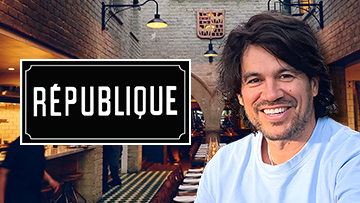 The Church of Brunch: Why Republique in Los Angeles is a Global Pilgrimage Site for Food Lovers
The Church of Brunch: Why Republique in Los Angeles is a Global Pilgrimage Site for Food Lovers -
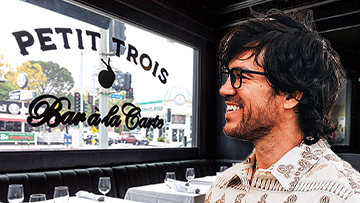 Tai Lopez Eats Brunch in the Valley?! (And Why You Should Too) Inside His Visit to Petit Trois Le Valley
Tai Lopez Eats Brunch in the Valley?! (And Why You Should Too) Inside His Visit to Petit Trois Le Valley -
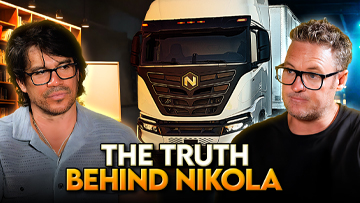 The Rise and Fall of Nikola Motors: Trevor Milton Tells All
The Rise and Fall of Nikola Motors: Trevor Milton Tells All -
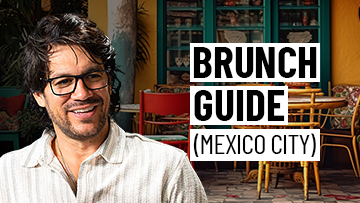 The Ultimate Mexico City Brunch Crawl: Tai Lopez Eats His Way Through CDMX's Best Breakfast Spots
The Ultimate Mexico City Brunch Crawl: Tai Lopez Eats His Way Through CDMX's Best Breakfast Spots

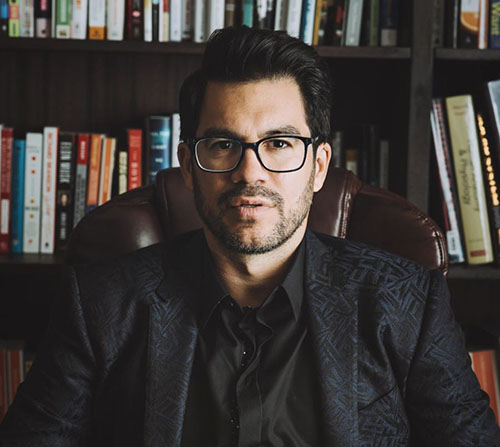
1 Comments